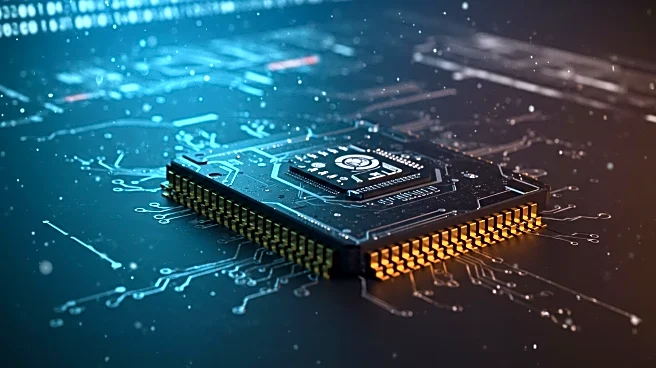What is the story about?
What's Happening?
President Trump has reversed a previous ban on Nvidia's H20 chip sales to China, opting for a deal that allows these sales in exchange for a 15% revenue share to the U.S. government. This decision contrasts with earlier restrictions aimed at preventing China from acquiring advanced AI technology. Despite the H20 chip being considered obsolete compared to other chips, its sale remains significant amid ongoing U.S.-China trade tensions. The deal has sparked debate, with critics arguing that it compromises U.S. national security and economic interests in AI development.
Why It's Important?
The reversal of the ban on Nvidia's H20 chip sales to China is significant as it highlights the complexities of U.S.-China trade relations and the balancing act between economic interests and national security. Allowing the sale of these chips could potentially benefit Nvidia financially, but it raises concerns about the U.S. inadvertently aiding China's technological advancements. Critics argue that this move could undermine efforts to maintain U.S. leadership in AI technology, posing risks to national security and economic competitiveness.
What's Next?
The decision may lead to further scrutiny and debate among policymakers and industry experts regarding the implications of such deals. Stakeholders in the tech industry and national security sectors are likely to assess the long-term impacts of this arrangement on U.S. technological leadership and security. Future negotiations and policies may be influenced by the outcomes of this deal, potentially affecting other industries and trade relations with China.














